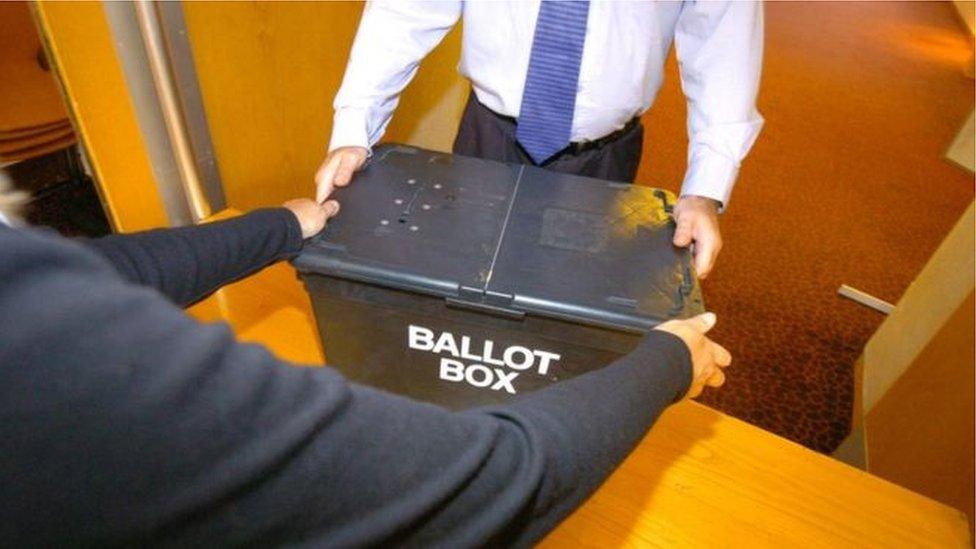Blondes and Brexit - NI's second election in three months
- Published
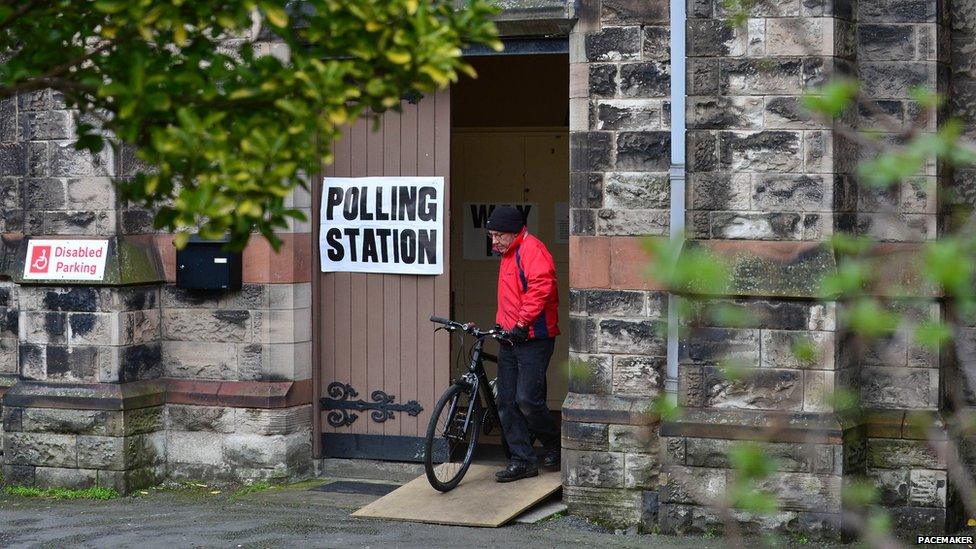
Northern Ireland voters last went to the polls in March
It has been a strange election campaign in Northern Ireland, coming so quickly after the March assembly contest and interrupting the talks that were meant to restore devolution.
The debate has ranged across the implications of Brexit for cross-border trade, the consequences of the political vacuum at Stormont and, rather less predictably, whether it is OK for one party leader to call another a "blonde".
In addition, the campaign has been interrupted twice as local politicians paid their respects to the victims of terror attacks in Manchester and London.
Bruising
The March assembly election was a bruising experience for Arlene Foster, with Sinn Féin closing the gap on the DUP, and unionists losing their Stormont majority.
When the DUP kicked off its Westminster campaign, its leader appeared determined to maintain her discipline.
There was no repeat of the "crocodile" remarks which had energised Sinn Féin's base in the spring, and there was a charm initiative aimed at Irish language activists.
This seemed to indicate potential flexibility ahead of the talks due on the other side of polling day.
But others in the DUP quickly hardened the line against an Irish Language Act.
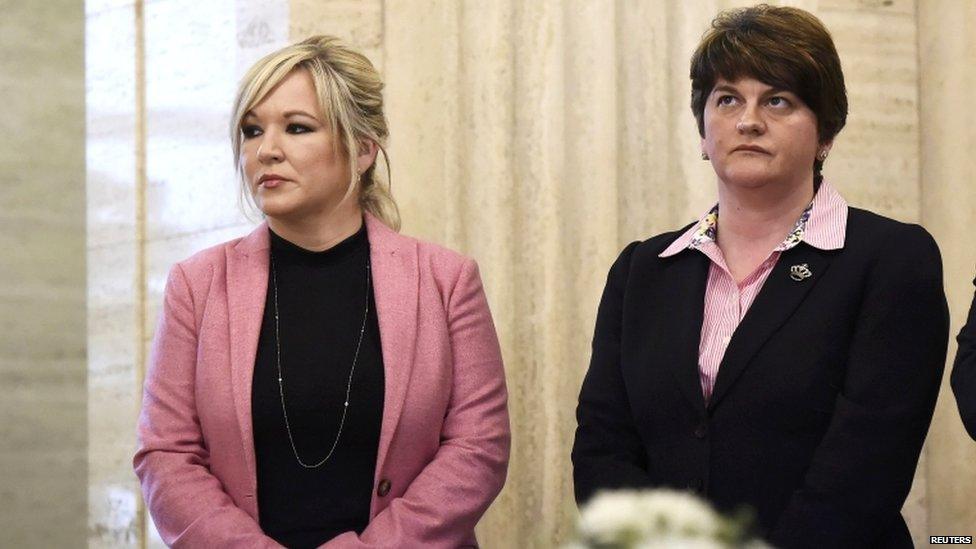
Michelle O'Neill (left) and Arlene Foster clashed over "Blondegate"
Then we had "Blondegate" - that unfortunate decision by the DUP leader to play a word association game about Sinn Féin's Michelle O'Neill with a reporter from the Sunday Independent.
When I talked to Michelle O'Neill for BBC Radio Ulster's Inside Politics, she seemed in unforgiving mood.
That applied both to the "blonde" comment and her party's red line on not sharing power with Mrs Foster until the inquiry into the Renewable Heat scandal has run its course.
"There are ways and means" she told me, for the DUP "to put forward someone who can go into an executive". So, no sign of pre-talks wriggle room there.
More recently, Mrs O'Neill has accused the DUP of setting its own preconditions - pointing to a series of tests for restoring Stormont included in the DUP manifesto.
Sinn Féin is piling its resources into places like Fermanagh South and Tyrone and South Down, where it hopes to make gains.
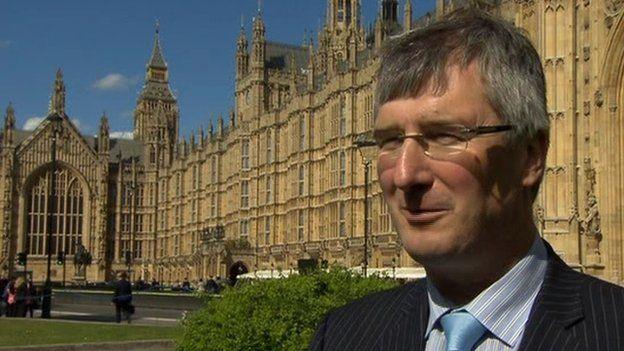
The UUP's Tom Elliott, benefited from a pact with the DUP in Fermanagh and South Tyrone in 2015
The DUP, likewise, is pushing hard in areas like South Antrim and South Belfast.
By contrast, the erstwhile official Stormont opposition appears in mortal danger, with both the SDLP and the Ulster Unionists under serious pressure across the board.
Hanging on to what they hold seems the height of their ambition.
SDLP concerns
The SDLP stresses that its MPs will take any seats they win and fight Brexit on the floor of the Commons, while the Ulster Unionists have also majored on the need for all constituencies to have representation, rather than electing abstentionist Sinn Féin MPs.
But perhaps wanting to avoid another "vote Mike, Get Colum" moment, the new Ulster Unionist leader, Robin Swann, avoided my invitation on Inside Politics to advise his supporters to back the SDLP in a seat like Foyle, where the UUP is not standing and Sinn Féin might run the SDLP close.
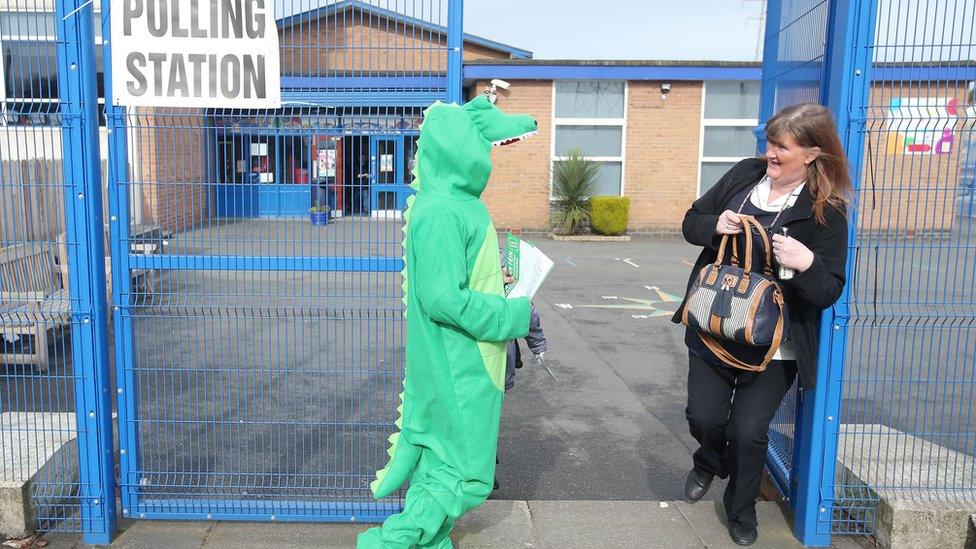
Sinn Féin's crocodiles have yet to make a reappearance
Mr Swann is so new to the UUP leader's job that no one is likely to call for him to go even if his party has a second bad election in a row.
But what about Colum Eastwood? In many ways the SDLP had a lucky assembly election in March, experiencing a slight fall in its vote yet hanging on to the same number of assembly members (MLAs).
But if the results of this election mirror that of the recent assembly contest, then the SDLP could be in big trouble in all three of its seats.
A good day
On a good day for Arlene Foster, the DUP might make gains at the expense of both the SDLP and the Ulster Unionists.
On a bad day, it could face a re-run of Alliance's 2010 upset, when Naomi Long unseated the then DUP leader Peter Robinson.
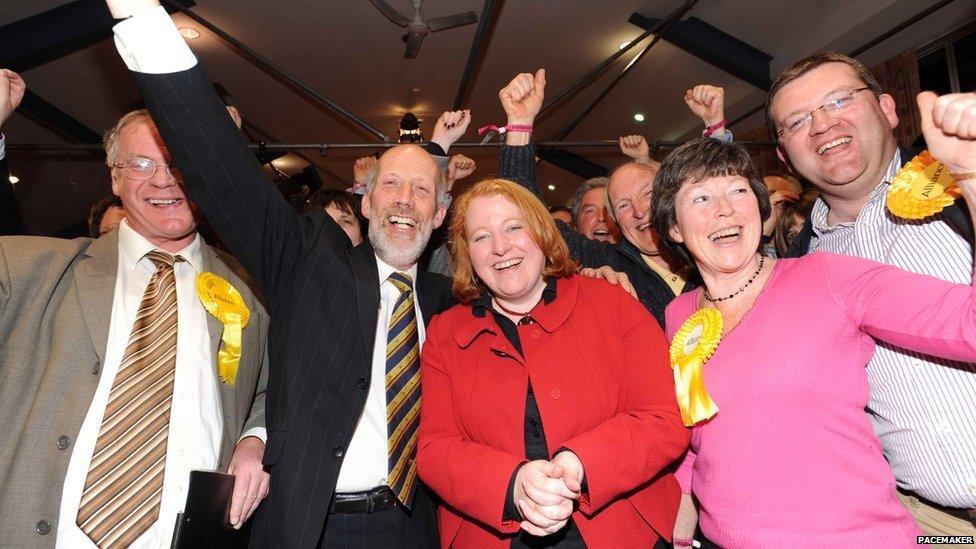
In 2010, Naomi Long won the Westminster seat that the DUP's Peter Robinson had held for more than 30 years
With no unionist pact operating in East Belfast this time, nothing can be taken for granted.
On a very bad day for the DUP, its current Westminster leader Nigel Dodds - who is benefiting from a pact - could be under pressure from Sinn Féin's new kid on the block, John Finucane.
Lacklustre campaign
Overall, the campaign in Northern Ireland has felt relatively lacklustre.
Given the Renewable Heat Incentive controversy, the resignation and death of Martin McGuinness, and the spring assembly election, it is perhaps hard for the politicians to sustain that level of intensity.
That said, like the March results, the Westminster count could prove dramatic.
Then it is back to Stormont Castle and the talks table where the balance of the negotiations will no doubt be influenced by the public's second verdict on their politicians in the space of three months.
- Published5 June 2017
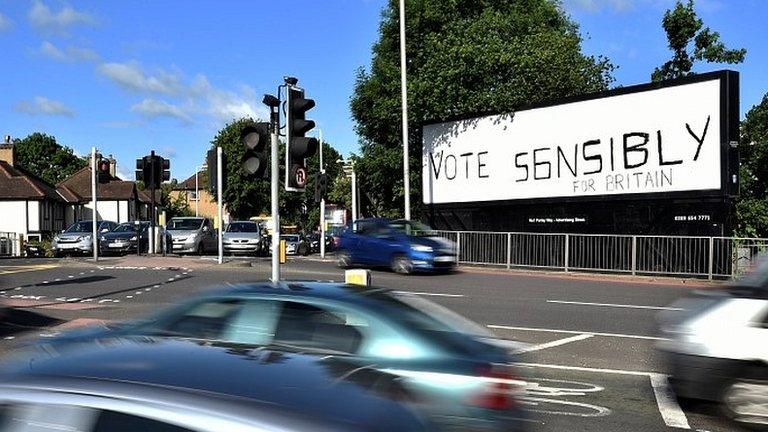
- Published22 May 2017
